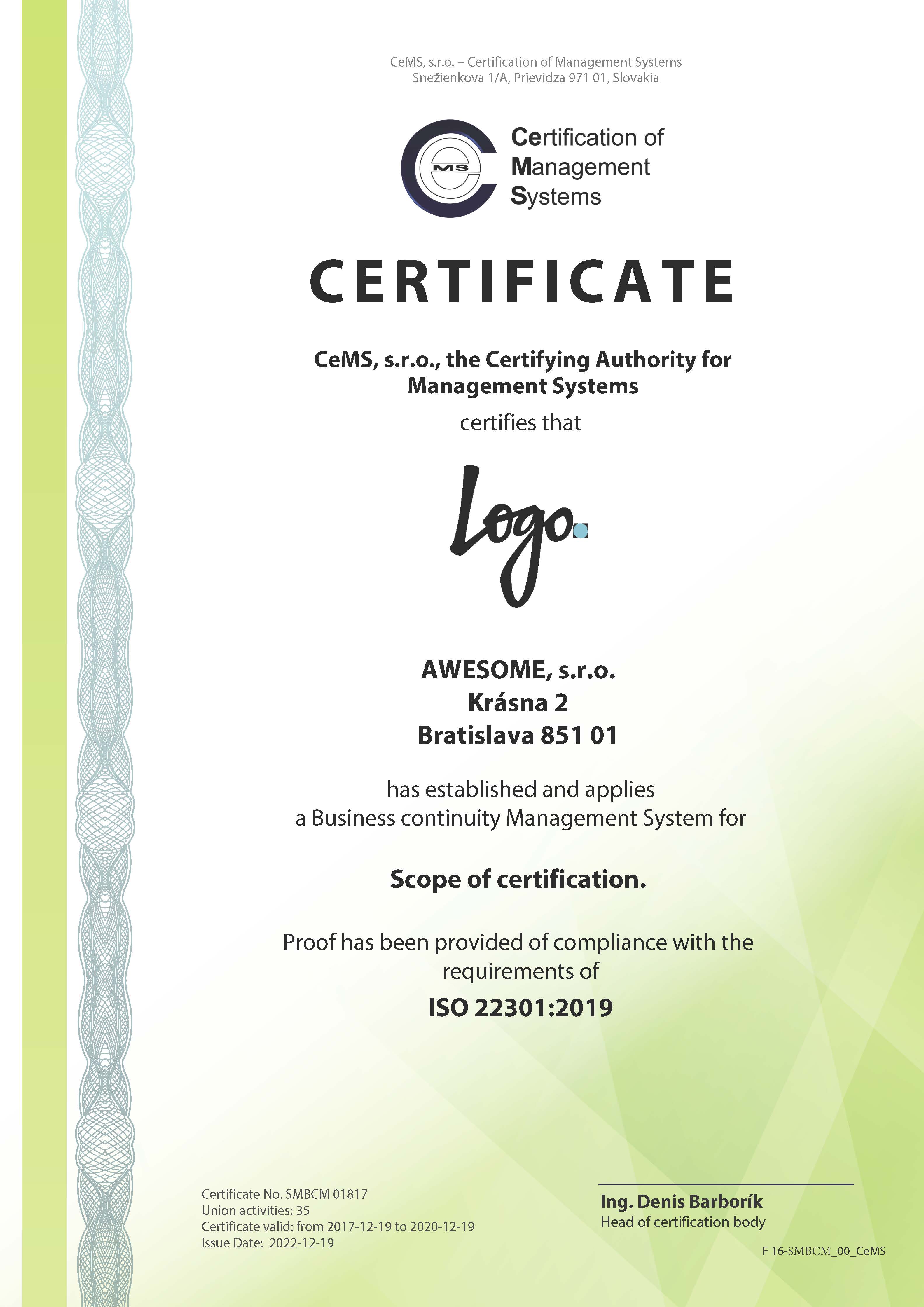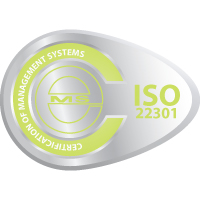ISO 22301 specifies business continuity requirements and rules and helps companies recover quickly from unforeseen events and contingency situations. Its objective is to prepare companies and protect them in the event of an exceptional unforeseen event such as a natural disaster, power outage, fire, staff shortage due to a pandemic, terrorist attack, mass IT failure, failure of key production or technological equipment and other threats. A properly set up business continuity management system will help you prepare “core business” processes to manage potential threats that your company faces so that their impacts and potential damages are minimal for the further operation of the company. ISO 22301 certification is intended mainly for companies that must ensure the continuous provision of products and services, and in the event of their failure, there would be large economic losses for the entire supply chain or a threat to life and health.
The purpose of the certification is to declare the following:
- Fulfillment of the requirements of the international standard ISO 22301 by introducing a systematic approach in the field of business continuity management
- Managed processes and the approach of employees to risk prevention and mastering the right response to situations, together with a description of their powers and responsibilities
- Reducing the negative effects of unexpected events on the company's day-to-day operations
Customer benefits
Implementation and certification of business continuity management creates preconditions for improving conditions in the following areas:
| Managerial benefits |
- A systematic approach to dealing with unexpected situations with regard to the sustainability of the organization
- Clear procedures and rules within the human resources organization in crisis situations
- Risk management by eliminating influences that may jeopardize the normal operation of the company
- Reduction of negative impacts and impacts to a minimum
|
| Economic benefits |
- Ensuring the continuity of core activities, “core business” processes and the ability to meet obligations to stakeholders even in the event of extraordinary unexpected events
- Minimization of economic losses caused by negative externalities on society
- The long - term prosperity of the organization and its sustainability in the event of a crisis
- Protecting assets and maintaining the company's reputation in the market
|
| Business and marketing benefits |
- Increasing competitiveness
- Increasing credibility for customers
|
Added value for you
- Objective assessment of the current state of risks and processes associated with their prevention and elimination
- Elimination of chaos and shortcomings in the organization in the crisis management of the company
- Expanding business opportunities and increasing credibility with both customers and other stakeholders
- Protecting the company's assets by properly setting up business continuity management and minimizing the potential impact of incidents on customers and stakeholders

Certificate ISO 22301

Certification mark
ISO 22031
-
Risk Assessment is an important tool for organisations and individuals to identify and minimise the risks associated with their activities. It helps them to better understand potential threats and make informed decisions about how to deal with risks.
More
-
BCM, or Business Continuity Management, is a systematic approach that prepares organizations for potential threats like natural disasters, pandemics, or cyber-attacks, ensuring effective operation during disruptions.
More